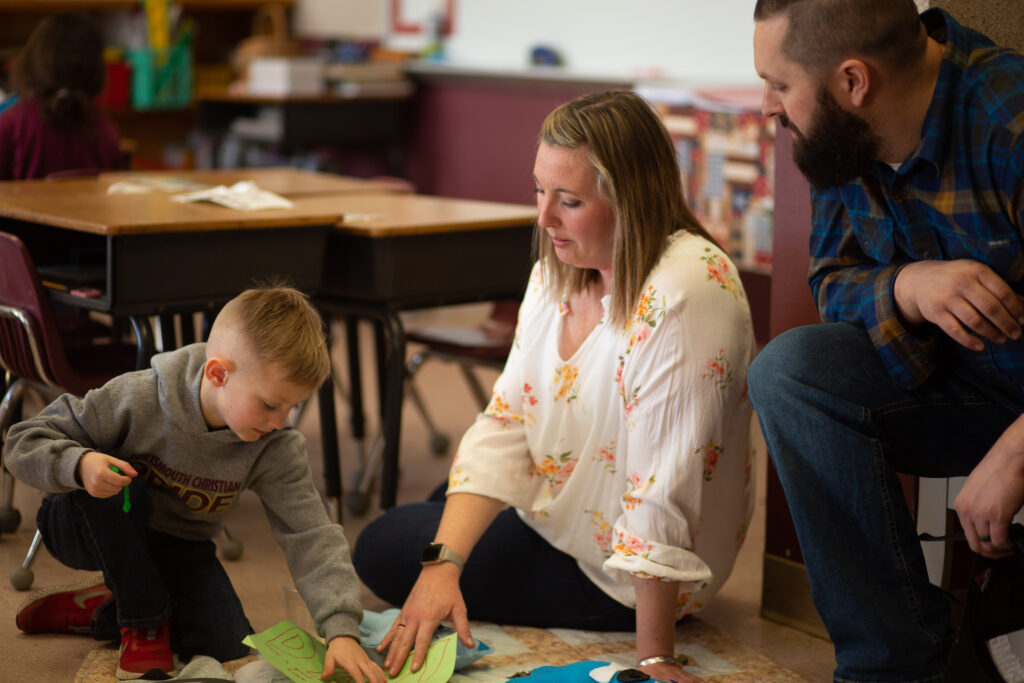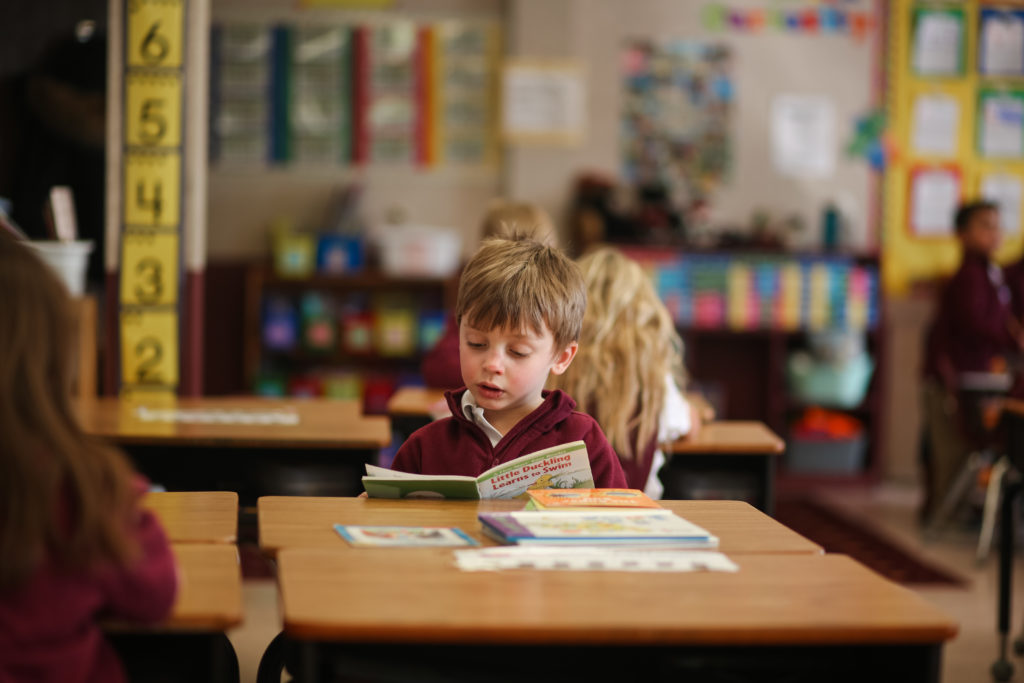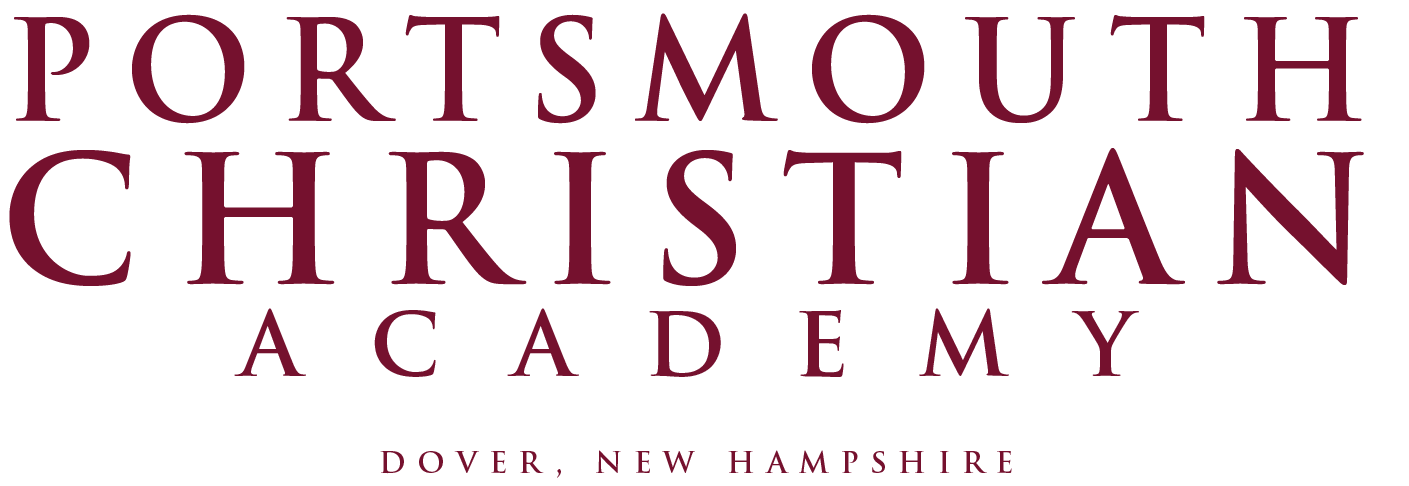Questions to Ask When Exploring Faith-Based Kindergartens
Searching for the right Kindergarten for your child may feel like a daunting task. Knowing the right questions to ask can help you narrow your decision and discover a school that is the right fit for your family. The questions below may serve as a guide for you as you begin exploring and touring schools.


1. What separates you from other schools?
Why this is important: You likely have many schools to choose from for Kindergarten, and each one will be different. At the start of your visit or online research, ask this question to each school. You should see evidence of these unique differentiators on your tour, and identifying what the school sees as unique will be a helpful hint for you into their philosophy and priorities.
2. How do you work with children who need support or challenge?
Why this is important: Every child has unique gifts and challenges, and not all children learn in the same way. In your school search, consider the needs (and potential future needs) of your child. Should your child someday need additional support in math or additional challenge in reading, is the school equipped to meet his/her needs?
3. How are faith and learning integrated?
Why this is important: Faith-based schools take a variety of approaches to integrate faith and learning. Asking this question in your search will help you to choose a school that aligns with your values and will reinforce what your children learn at home.
4. What is the student-teacher ratio?
Why this is important: Small class sizes are generally considered a benefit for young children. The individualized attention your child will receive with a low student-teacher ratio will allow educators to identify your child’s learning style, personality, and habits. The better a teacher knows each student, the more likely the teacher is to notice things like behavioral changes, academic challenges, and even areas of strength. On the other hand, a class size that is too small may limit opportunities for socialization.
5. How do you handle discipline?
Why this is important: Disciplinary models vary from school to school. As you search for the right fit for your family, consider your own family’s model. Does the school align with your family’s perspective? Will your child respond to discipline in the classroom based on the chosen model?
6. What are the enrichment opportunities?
Why this is important: Your son’s fixation on LEGOS may someday develop into a passion for physics or design. Your daughter’s interest in learning about new places may someday set her up to explore cultural studies or be fluent in a second language. Exposing your children to opportunities outside the traditional classroom at a young age will allow them to explore areas of interest as they grow and develop skills. Enrichment opportunities in Kindergarten may include visual art, music, physical education, foreign language, library, and more.
7. What qualifications do you look for in hiring teachers?
Why this is important: Teacher certifications vary from state to state, with some not requiring all faculty to have certification. Additionally, teachers have varying levels of qualifications… from different degrees and certifications to things like bi-lingual skills or a foundation of faith. You’ll want to explore what types of qualifications are important to you and how the school’s priorities match your own.
8. Is your Kindergarten a play-based program?
Why this is important: The State of New Hampshire requires public kindergartens to be play-based while private schools are free to develop their own kindergarten program. Some private make space in the day for traditional instruction in addition to play-based activities. It will be worthwhile for you to have this conversation with the Kindergarten teachers or principals to understand the school’s philosophy and how the chosen model will set up your child for first grade and beyond.
9. Do you offer financial aid?
Why this is important: Affording private education looks different for every family. As you evaluate your family’s financial situation, keep in mind that many schools offer assistance or reduced tuition rates based on financial need. In some cases, tuition programs can significantly reduce the cost.
It is our hope that your school search will bring you to a place that is uniquely equipped to meet your child’s needs. We see education as a partnership with parents, and we hope that these questions will guide you towards finding a school that is the right fit for your partnership.
Ranked “#1 Private K-12 School in New Hampshire” by Niche.com for 5 consecutive years, Portsmouth Christian Academy has been inspiring students on the seacoast to maximize their potential for forty years. PCA provides a nurturing educational environment that emphasizes Christ-centered community, outstanding academics, differentiated learning, and exceptional character. Located just minutes northwest of Portsmouth, NH on a fifty-acre riverfront campus, PCA is a dually accredited, independent, college-preparatory day school where students from preschool to Grade 12 are challenged to thrive academically and grow as servant-leaders, prepared to impact the world for good.


